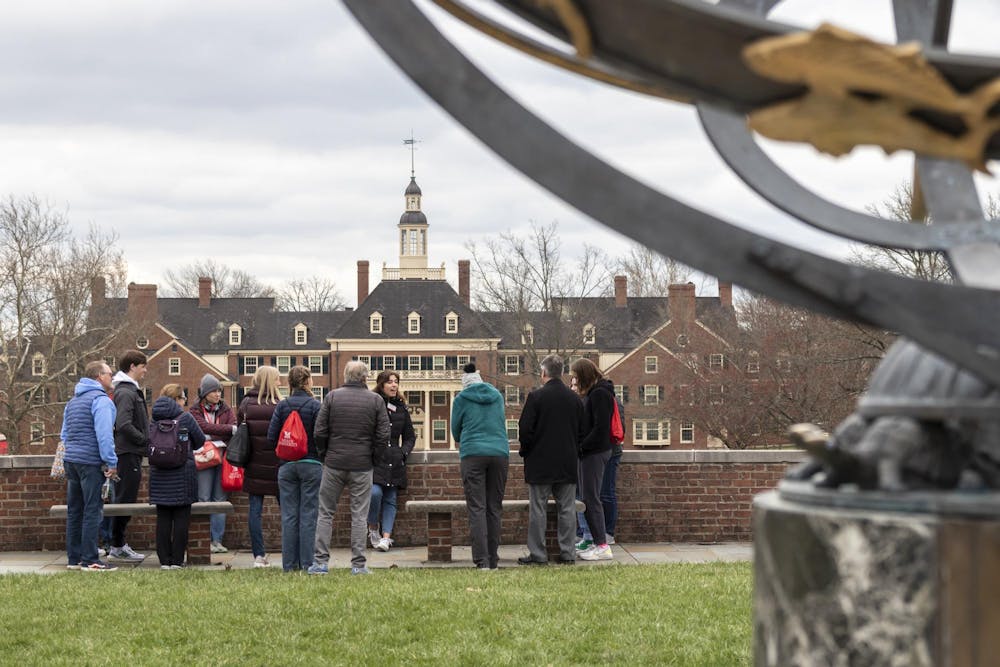As a student, you have just one job: Be curious.
That’s it.
This should be easy, since curiosity is a fundamental human trait. But today’s educational environment doesn’t always encourage it.
Many of you are traversing our red-bricked halls and leafy quads for the first time, expecting over the next four years to learn facts and skills applicable to a predetermined career. And, I’m sure some of you already have everything planned out – your major, the job you’ll get and what specific courses you need to take (and which ones to avoid) to complete that major and get to that job.
But if you think you have it all figured out even before your first 8:30 a.m. class on Monday, then you’re already doing it all wrong.
Yes, we will prepare you for a successful career in nearly anything you might want to do. But college is not equivalent to training you for a single job. It’s an arena for discovery, offering all the opportunities you need to become a smarter, more thoughtful and capable person, ready to meet the intellectual challenges the real world presents. But you can’t do that unless you come here with open-minded curiosity.
You never know when curiosity will ignite. But when it happens, only then will you know your purpose. I was in your position in 1997, freshly arrived on a sprawling campus offering an overwhelming number of majors. I had a vague idea that I wanted to study “international business” (whatever that is). But my first class was the History of Western Art, the equivalent of ART 188 at Miami, and I was hooked. No other class would generate as much curiosity as that one. Before long, art history was my major, and here I am today doing exactly what I discovered I wanted to do with my life.
Curiosity yields that intoxicating excitement of discovery that should fuel you and challenge you. It will also be what brings you enjoyment. Your college career is too short not to devote yourself to what fulfills you – even if that choice surprises you and worries your parents. Trust me: I’ve spoken with too many seniors who elected not to major in what makes them curious, but what seemed safe. Tragically, they all want to start over. None of them look forward to life after college.
But the requirement to be curious doesn’t just apply to your major. Some of you will wonder why on Earth you should care about a course outside your primary area of study. You might decide before you even attend the first class that you’re better off not devoting the energy to care. But unless you read literature with a sense of wonder, explore biology with an expectation for revelation or study abroad and learn – actually learn – a new language, you risk missing a potentially life-changing experience.
Yes, curiosity involves surrounding yourself with the unfamiliar. And that applies equally to what you do outside class. The comfort of familiarity is sometimes too strong to resist, and so we often choose to lead our lives without ever really challenging ourselves to encounter anything new. Besides, curiosity of the unfamiliar can also breed vulnerability, present difficulties and sometimes frustrate and disappoint. In other words, it’s hard to let yourself be curious.
So why bother going through all the trouble of being curious when you can just follow your safe, pre-determined four-year plan and move on to your life exactly as you envision it right now? Well, it’s because the “real world” requires a nimbleness of mind – that is, an intellectual versatility and adaptability, and even a love for mental labor – that comes from the cultivation of curiosity. We’re not here just to dispense facts. We’re here to help you find the thing that makes you want to get up each morning and turn on your brain.
None of you will discover new secrets about our distant cosmos without curiosity. None of you will design new communication platforms to help the hearing and vision impaired, achieve a more moving approach to conducting Mahler’s symphonies or find new ways to improve transportation safety without curiosity. None of you will uncover new insights into the lives (and deaths) of ancient Romans, or lead successful business ventures, without curiosity.
Enjoy what you're reading?
Signup for our newsletter
But any of you can do all those things and more if you let yourself be curious.
Dr. Andrew Casper is a professor of Art History in the Department of Art. He teaches Miami Plan courses on Art and Society, as well as specialized courses in Renaissance and Baroque Art in Italy. His research and publications come from a curiosity about religious imagery in Italy from the late 1500s and 1600s that he initially developed in his first year of college.
At The Student, we are committed to engaging with our audience and listening to feedback. This includes publishing a diverse array of guest editorials. For more information on guidelines and processes, email Taylor Powers, The Student's opinion editor, at powerstj@miamioh.edu.




